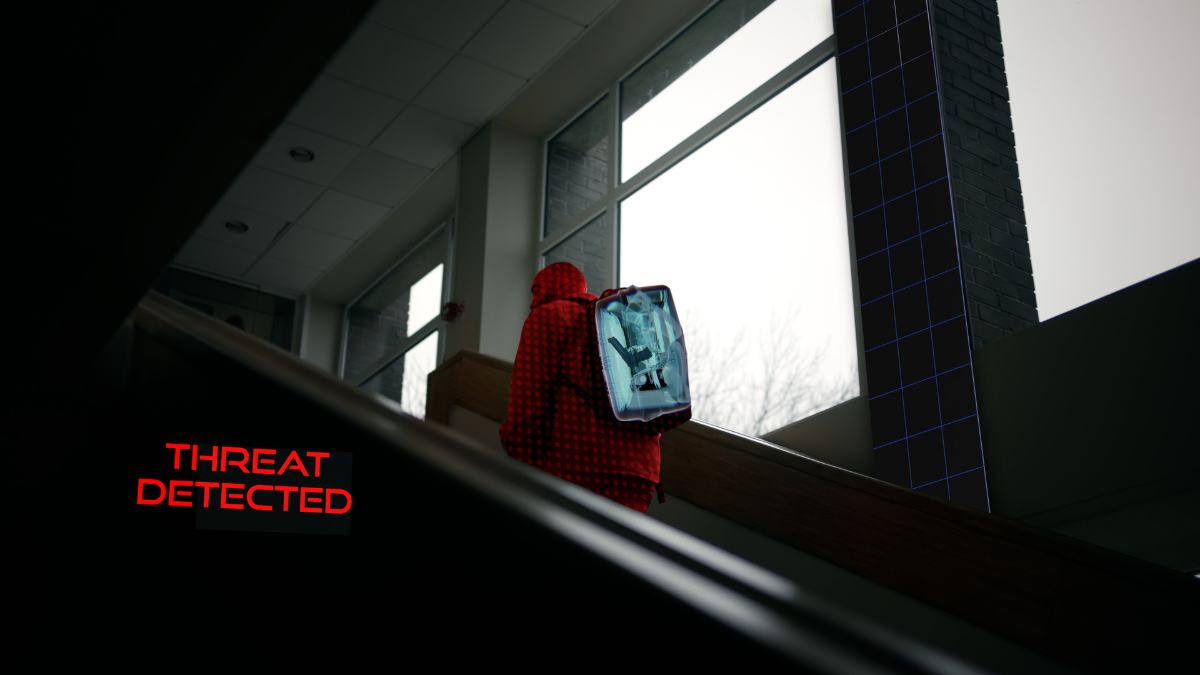The Traitors NZ Isn't Just a Cultural Phenomenon; It's an Object of Academic Scrutiny

Oct. 15 2025, Published 2:15 a.m. ET
“I am… a traitor.”
Four words that caused uproar in New Zealand and around the world back in August 2024. It was the last episode of the second series of The Traitors NZ, and Bailey Kench, a wedding videographer from Auckland, had just revealed herself as the final traitor. It was shocking not only because a traitor had won the game, but also because Kench had been recruited later on, fooling all of her fellow contestants, including her closest ally, Donna Officer.
The world, of course, was watching. The Traitors NZ was one of the most popular and talked-about reality shows of 2024, working to put New Zealand back in the spotlight and redefine the country’s presence on the global entertainment stage. And this is good, because in terms of film and television, the country has been starting to drag its feet.
While movies such as The Lord of the Rings and The Hobbit put New Zealand firmly on the map years ago, the recent decade has seen fewer international blockbusters and less consistent local output making global waves. In other industries, such as gaming and tech, the country has been excelling. Just this month, the NZ iGaming bill cleared its first reading with an 83-39 vote, which could significantly boost the already thriving online pokies NZ market. In the tech industry, the government has allocated $500m to the Elevate NZ Venture Fund, stimulating investment into numerous tech companies.
However, there’s still a gap between where New Zealand could be in global media and where it currently stands. And the success of The Traitors NZ has managed to reignite global interest – perhaps not to the extent that big blockbuster movies have done, but enough to remind audiences and industry insiders that New Zealand is still a player worth watching.
Perhaps this is because of what the show is. It asks people to talk about it. No, it demands people to talk about it. Due to its intricate gameplay and psychological tension, The Traitors NZ taps into a very human fascination that has captivated audiences for centuries: the intricate relationship between trust and betrayal. At its heart, this is a social experiment disguised as entertainment, to the point where it’s not just a cultural phenomenon, but also an object of academic scrutiny. If you’ve been living under a rock and missed the latest season, however, you might be wondering how this is the case and why it has managed to draw in so many people. To understand this, though, it’s first important to understand the concept of the game itself.
The Traitors: Explained
The concept of The Traitors NZ is adapted from the original Dutch format of the show, De Verraders, which first aired in the Netherlands in 2021. From there, the format quickly spread internationally, to the US, the UK, Australia, and eventually New Zealand – with each adapting the core mechanics to suit local audiences while keeping the essence intact. At its core, the show is a high-stakes psychological game.
A group of contestants live together in a secluded, grand estate, and three of those contestants are chosen to be ‘traitors’. The rest are known as the ‘faithful’, and they must work out which of their fellow contestants they can trust. They need to do so quickly, however, because each night, the traitors meet in secret to eliminate one of the other players.
Before each ‘murder’, there is also a round-table discussion, where the faithful discuss their suspicions and must choose to vote out one player. During the day, everyone clubs together to try to win some prize money – which will be shared between the faithful – but the sticking point is that, if just one of the traitors is still around at the end of the show, they can take the whole pot, and the remaining faithful get nothing.
The Mindset of the Faithful
One of the most interesting things about this concept is how it forces the faithful contestants into a constant state of psychological uncertainty. Every interaction, every glance, every hesitant word can be a clue – or a red herring – and so the faithful are tasked not only with surviving, but also seeing clearly in a fog of lies and manipulation.
Because the traitors are hidden in plain sight, paranoia quickly becomes a defining feature of the gameplay, and this becomes obvious when we get to the round-table discussions. Here, the tension reaches its peak. The faithful must publicly debate and justify their suspicions, knowing full well that voicing the wrong opinion could turn the tide against them.
These discussions, of course, often spiral into circular logic, fuelled by gut feelings and subtle behaviour cues more than cold, hard facts. And this creates some harsh, often uncomfortable scenes for viewers to watch. What’s fascinating is how quickly trust erodes in this environment. Contestants can go from allies to enemies in the space of a single vote, and one mistake – even just a poorly timed smile – can be perceived as proof of betrayal.
Unless one of the traitors holds their hands up and says explicitly that they’re a traitor, there is absolutely no evidence for the faithful to work on. Instead, they have to rely on instinct, social
perception or sometimes just luck – all of which can either lead them to the right person or, more often than not, a fellow contestant who is completely innocent.
The Mindset of the Traitors
Conversely, we as viewers get to see how ordinary people can display calculated deception – and often thrive. The traitors aren’t cartoon villains twirling moustaches in dark corners – they’re usually well-liked, trustworthy individuals who have to navigate a unique psychological challenge to reach their ultimate goal – though in the US version, some contestants were slammed for practicing their lines in the mirror!
However, this creates some fascinating social dynamics. Unlike the faithful, who are reacting to the unknown, the traitors are playing both sides – actively shaping the narrative while attempting to blend into it. They know who their enemies are, but must sit at the same table, feign outrage, and often lead the witch hunts that target their innocent opponents. This duality then forces them into a constant performance – a delicate balance of manipulation and restraint.
Also, as the game progresses, the pressure compounds. Eliminating players without drawing suspicion isn’t easy, and it can even lead to fingers pointed in their own direction. Let’s say, for instance, that one of the faithful accuses a traitor of being deceitful at the round table. This traitor can’t then murder that player later in the evening, because then everyone’s eyes will be drawn to them. They have to keep their worst enemies close, and that’s where the psychological toll really starts to show. They’re forced to endure being called out, doubted, even vilified – all while smiling and playing innocent.
For the traitors, it’s not just about lying, then – it’s about managing perception and maintaining a web of trust with those who, if they ever saw them clearly, would destroy them in an instant. This also leads to a heavy emotional burden. If you’re playing as a faithful, at least you’re comfortable in the knowledge that you’re telling the truth. Sure, you might be wrong in your suspicions, but your conscience is always clear. For the traitors, however, the weight of the game is very different. Every connection they form is built on deception, and this can lead them to a very lonely place. Either the traitors thrive, or they fall apart, and the ones who make it to the end – such as Bailey Kench in the 2024 season – are the ones who can adapt to a tee.
An Object of Academic Scrutin
As we mentioned before, the fascinating psychology of this game is part of the reason why it has captured the imagination of viewers around the world, and cast millions of eyes towards New Zealand. This is not like any other game show where contestants simply compete in physical challenges or trivia – The Traitors NZ delves deep into the complexities of human behaviour, and offers itself up to academic scrutiny.
Academic researchers have begun to analyse the show’s unfolding drama, using various lenses – from group theory and game theory – to explore how individuals strategise within competitive social environments. A specific study released by researchers at the University of Aberdeen, for instance, looked into why traitors always proved to be so elusive. They found that when somebody meets a group of people, they judge their reliability by combining their facial features into ‘one composite face’.
Rather than meticulously examining everyone in turn, then, they blend the impressions of all the faces to form a general understanding about the group, and this process – known as ‘ensemble perception’ – happens in just a quarter of a second. This can be both a good thing and a bad thing, of course. On the positive side, it can allow us to quickly extract perceived social information without getting bogged down in details – which helps us make fast decisions in difficult social situations.
But on the flip side, it can blind us to the truth in the blink of an eye. If you’ve watched the show, you will undoubtedly have heard one of the faithful utter the phrase: “There’s just something about them I don’t trust.” The reason for this lies in the power of the rabid, subconscious process, which gives people a vague feeling of mistrust even though it’s not based on any concrete evidence. These impressions can then be easily manipulated by confident traitors who know how to project trustworthiness and blend seamlessly into the social fabric.
From here, the focus turns to the psychology of the traitors themselves. They don’t have it easy, of course! Intriguing commentary comes from Dr Rachael Molitor, a Chartered Psychologist and Psychology lecturer at Coventry University. In her analysis, Dr Molitor explored the profound psychological toll that the role of a traitor imposes on contestants, highlighting the concept of ‘cognitive dissonance’, which occurs when individuals experience a conflict between their actions and their beliefs.
For traitors, this manifests as a constant internal struggle between their deceptive behaviour and the social norms of honesty and trustworthiness. She also discusses the phenomenon known as the ‘dissonance of group cohesion’, where the need to maintain group harmony clashes with the act of deception. This tension can then lead to emotional turmoil, as traitors must navigate the complexities of lying to their fellow contestants while managing the psychological stress associated with maintaining a secret identity. The prolonged exposure to such stress, of course, can result in sudden emotional outbursts and a breakdown of social bonds within the group – something we’ve seen time and time again in the show.

Conclusion
There’s a reason why the showrunners provide contestants with psychological support before, during and after filming. The support isn’t just a token gesture – it’s a crucial part of ensuring the wellbeing of players who are thrust into an intense environment where trust is weaponised and personal relationships are constantly tested.
Professional psychologists work with the cast to prepare them for the emotional rollercoaster ahead, and this helps them to develop coping strategies and process the aftermath once the cameras stop rolling. What other show can you think of that has this kind of dedicated mental health focus embedded into its production? If nothing else, it proves that the people behind The Traitors NZ understand what kind of show they have, and why it has become such a global phenomenon.
It’s all about psychology. As we mentioned before, there are no hard facts that anyone can go on, and so in reality, it is just a social study that demonstrates how fragile trust can be when layered with suspicion and deception. The contestants, in a way, are guinea pigs in the experiment – coupled, thankfully, with all the support they need and a lucrative cash prize if they come out on top. And that’s what makes the show so fascinating. The Traitors NZ offers a revealing look at human nature in action.


